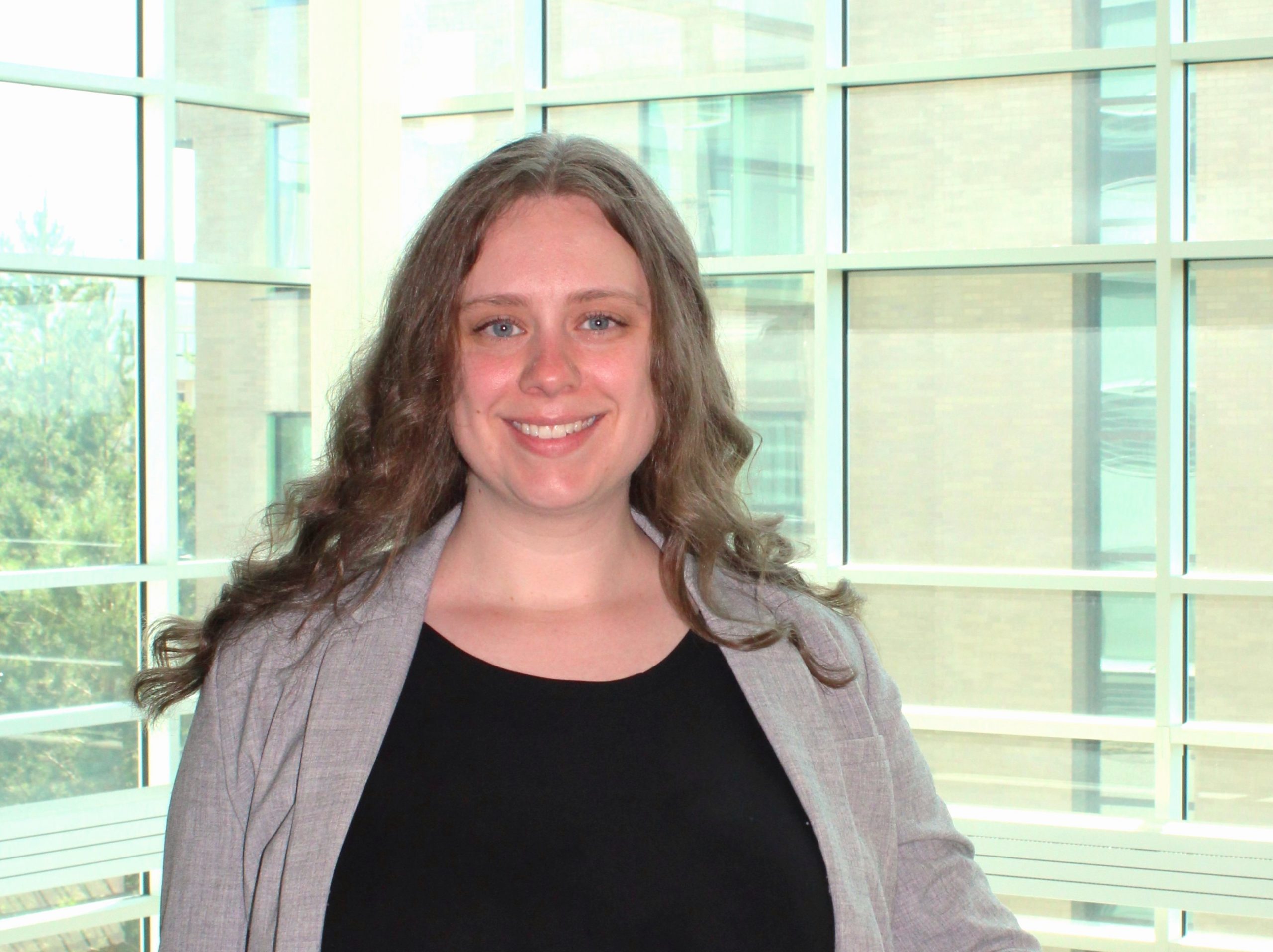Research shows that reducing social isolation and loneliness among older adults may prevent or delay dementia cases.

Canada's population is rapidly aging, raising concerns about an increase in dementia cases. Age is the primary risk factor for developing dementia, and in the next 50 years, those aged 65 and over will constitute a quarter of the population. Currently, over half a million Canadians in this age group live with dementia, a number projected to exceed one million in the next decade.
In response, the Government of Canada, through the Canadian Institutes of Health Research (CIHR), has awarded Dr. Natasha Gallant a Tier 2 Canada Research Chair (CRC) in Aging and Long-Term Care. Gallant's award was part of a larger federal bundled announcement that provided over $4.4 million in funding to University of Regina (U of R) scholars for an array of research projects.
"Targeting social isolation and loneliness is an immensely promising approach to preventing, delaying, and modifying the course of dementia," says Gallant, an assistant professor of psychology who received $600,000 over five years to support her research. Research indicates that reducing social isolation and loneliness among older adults may prevent or delay dementia, making this a promising strategy for mitigating the disease's prevalence.
That's why her CRC program will focus on studying older adults, both with and without dementia, who experience social isolation and loneliness.

"I will explore how older adults express feelings of loneliness differently when they are alone versus when they are with others," says Gallant. "My team and I will then develop strategies to reduce social isolation and loneliness among older adults, discovering new methods to ensure they remain socially connected within their communities."
As dementia progresses, individuals require increasing levels of care, eventually needing round-the-clock support. Over 50 percent of new residents in long-term care facilities already have dementia, and the anticipated rise will significantly impact healthcare, families, and the economy. Gallant's research will specifically address long-term care residents living with dementia.
“My research program aims to reduce the detrimental impact of dementia within our population.”
To support these goals, Gallant is establishing the Aging, Residents, and Caregivers (ARC) Living Lab. She received $79,927 from the Canada Foundation for Innovation’s John R. Evans Leaders Fund for the lab's infrastructure. The funding will be used to build a testing room, observation room, and lab space, and to acquire the necessary technology for collecting physiological data and performing automatic facial analysis.
"My research program aims to reduce the detrimental impact of dementia within our population," says Gallant. "Additionally, I will provide exceptional opportunities for students and trainees to enhance their research-related knowledge, skills, and expertise in aging and long-term care, preparing the next generation of researchers to meet Canadians' needs well into the future."
Dr. Chris Yost, U of R Vice-President (Research), underscores the importance of the government’s support. “Thanks to this federal funding, our researchers are able to address critical issues and significant problems affecting people and the environment,” says Yost, who also received funding for his research into microbes that impact peas and lentils. “The impact of our research has the potential to extend far beyond the University and to improve the lives of Canadians and others around the world.”
Below is a list of the other University of Regina researchers who received funding as part of the Government of Canada’s bundled announcement:
Natural Sciences and Engineering Research Council Discovery Grants:
Marcella Berg, Scattering and molecular dynamics applications for soft condensed matter, $137,500
Francis Bischoff, The geometry and topology of singular differential equations, $142, 500
Guoxiang Chi, Basinal fluid flow systems and their relationships with mineralization - coupling of shallow-deep, hydrodynamic-geochemical, and channeling-trapping processes, $180,000
Leah Chibwe, The application of effect-based methods for the identification and characterization of contaminants of environmental concern in aquatic ecosystems, $137,500
Tanya Dahms, Linking cell wall integrity, stress and mechanosensing to candidal growth and development by correlative microscopy, $240,000
Dianliang Deng, Adaptive approaches in quantile regression framework, $120,000
Kerri Finlay, Climate and land use impacts on the magnitude and controls of aquatic methane fluxes in the northern Great Plains, $215,000
Amr Henni, Functionalized metal organic frameworks and zeolite geopolymers composites for carbon capture and utilization, $195,000
Hussameldin Ibrahim, Solar energy-based photocatalytic water splitting for hydrogen production using novel super-activated biochar nanomaterials, $230,000
Sharfuddin Khan, Knowledge-based decision support system for overall supply chain resilience performance evaluation, $167,500
Kamyar Khodamoradi, Towards a detailed map of computability and approximability for combinatorial optimization problems, $137,500
Peter Leavitt, Landscape effects of nitrogen on lake ecosystems: Applying a new paradigm for freshwater eutrophication, $475,000
James McVittie, Development of survival analysis methodologies for combined cohort studies and failure time data measured with error, $107,500
Kelvin Tsun Wai Ng, Development of a data-driven waste management system in Canada, $260,000
Arthur Situm, Development and evaluation of corrosion mitigation strategies in molten salts, $157,500
Farshid Torabi, Microfluidic insights and mathematical modelling of CO2 storage and residual oil reduction in heavy oil formations during CO2-based cyclic solvent injection: Transitioning to a low carbon emission energy production, $165,000
Julia Totosy de Zepetnek, Clarifying mechanisms underlying physical activity's effect on the microbiota-gut-brain axis, $177, 500
Andrei Volodin, Asymptotic analysis and consistency of some statistical methods and models, $105,000
Chris Yost, Uncovering genetic determinants in Rhizobium leguminosarum necessary for on-seed survival and colonization of the spermosphere of peas and lentils, $240,000
Stephanie Young, Development of a sulfammox-based hybrid membrane bioreactor for the treatment of carbon capture and storage wastewater using experimental and computational approaches, $155,000
Natural Sciences and Engineering Research Council Discovery Development Grants
Kin-Choong Yow, Managing Decentralized Microgrids with Attention-based Artificial Intelligence (AI) Algorithms, $40,000
Lei Zhang, Revolutionizing AI for computing speed and energy efficiency using bio-inspired spiking neural network and hardware acceleration, $40,000
Yang Zhao, Statistical analysis with data missing in nonmonotone missingness patterns, $40,000
Natural Sciences and Engineering Research Council Research Tools and Instruments Grants
Jinkai Xue, Gas chromatography system for water research via the water-climate-energy-food-environment nexus, $138,308












